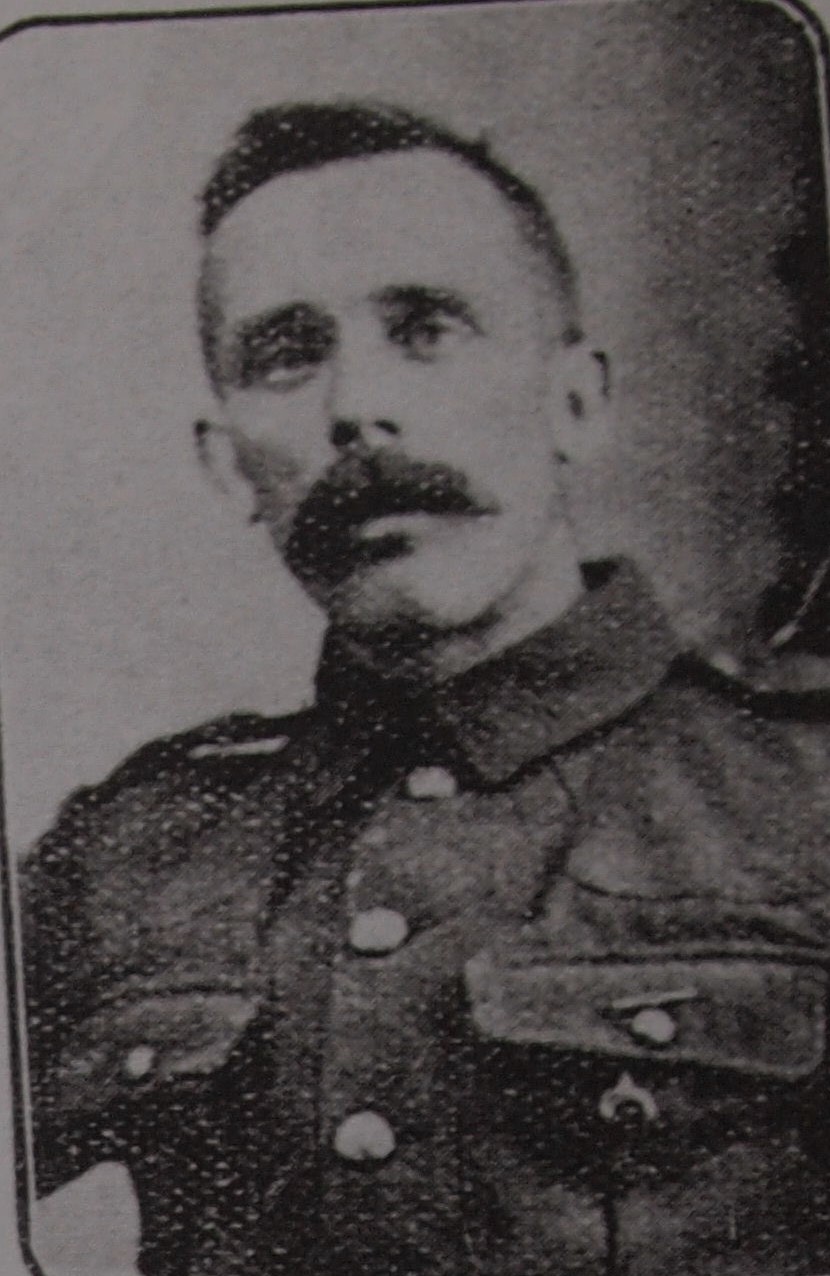
Mrs Pat Fazey visited the museum recently. She is originally from Yorkshire but has lived in Newent, North Gloucestershire for the past 17 years. We helped Pat research Private Pickering who was probably a distant cousin several times removed.
John Mason Pickering was born in the third quarter of 1877. By the time of the 1881 census he is 3 years of age and living with his parents John and Ann in the hamlet of Newbridge in Pickering. His father is a quarry labourer and he has 4 sisters, Rachel, Mary, Elizabeth and Grace.
In the 1881 census he is aged 14 and working as a “farm Servant at Brook farm in the Pickering area. The farm is run by the Banks family.
In 1904 (January to March) there is a record of marriage to an Edith Emily Cruce in the Eccleshall Bierlow district of Sheffield.
In the 1911 census John and Edith are residing at West Thorpe, Hoylandswaine near Pennistone. Aged 34 he is still working as a farm labourer. The couple have two daughters, Hilda Pearl aged 6 and Ruby Annabelle aged 1 and before 1914 they have son John.
Before enlisting in 1914 John Mason is working as a quarry labourer. He disembarks, with the 2nd battalion, in France in December 1914.
He is killed in action at Neuve Chapelle on the 12th of March 1915 and is buried in the Cabaret-rouge British cemetery Souchez. He was awarded the Victory and British War medals along with the 1914 Star.

Explore more memories from the ribbon
-
Wilfred Carver
Submitted by Angie Atkinson. Wilfred Carver, Royal Marines Light Infantry (16955), was born in 1895. He died on the 26th of November 1914 while on the HMS Bulwark. He is remembered on the Portsmouth Naval Memorial.
-
George Butterworth
At the outbreak of the First World War, George Butterworth was being described as the most promising British composer of his day. George was born in Paddington, London in 1885 but at the age of six moved to Yorkshire when his father became first solicitor and then General Manager of the North Eastern Railway Company. George inherited his mother’s talent for music (she was a professional singer before her marriage). His parents sent him to Aysgarth Preparatory School, near Bedale where he played the organ during school services. His musical ability led to him gaining an Organ Scholarship to Eton College. He initally entered Trinity College, Oxford with the intention of studying law, but this idea was abandoned as he became increasingly interested in setting down the folk music of the British Isles. At the outbreak of the First World War, George enlisted in the Duke of Cornwall’s Light Infantry and was later granted a commission in the Durham Light Infantry. He was on active service for almost a year and awarded the Military Cross in 1917. The citation states that he had commanded the Company when the Captain was wounded ‘with great ability and coolness … and total disregard of personal safety’. Less than a month later, on Saturday 5 August, he was shot through the head by a German sniper in ‘Munster Alley’. Only a day later, William Short of the 8th Battalion, Yorkshire Regiment undertook the action which led to his posthumous Victoria Cross in the same…
-
Evan Francis Kerruish
Researched by Will Young. Born on 20th July 1897 at Port Elgin, Ontario, Canada, Evan Kerruish was destined to be burried in distant Catterick at the age of 20. His parents were the Rev. Thomas and Mrs Maria Kerruish of Hamilton, Ontario. He enlisted into 153 (Wellington) Battalion of the Canadian Expeditionary Force on 6th October 1915. He sailed from Halifax, Nova Scotia on the sister ship of the Titanic, the SS Olympic on 29th April 1917 and landed at Liverpool on 7 May. Kerruish was commissioned into the Royal Naval Air Service on 9th October 1917, serving with Torpedo Squadron No 1. The cause of his death on 13th July 1918 and reason for burial at Catterick are unknown.
